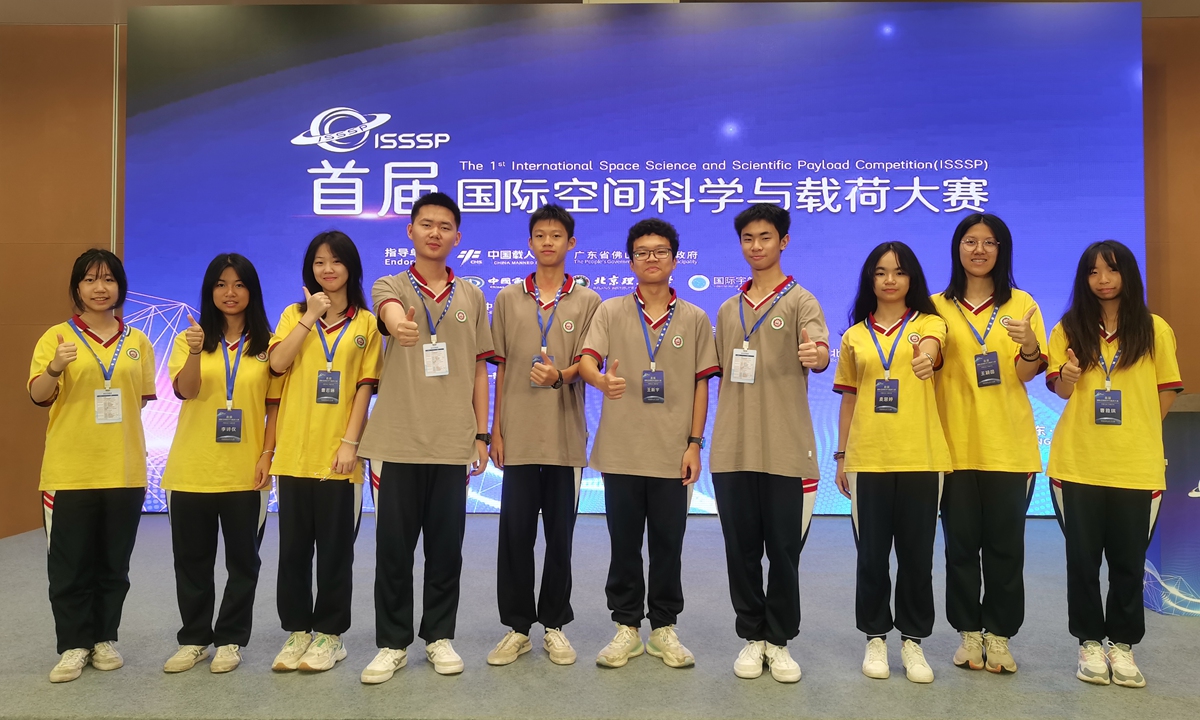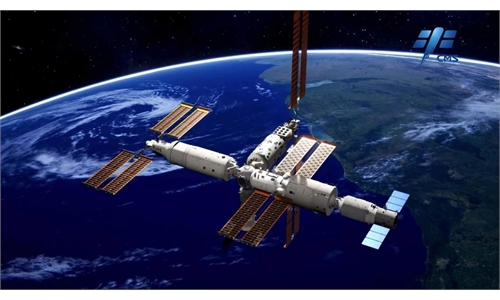China to open more science courses at middle schools, include practical experiments in entrance exams

The group of students from Foshan's Dali High School brings their research project to the first International Space Science and Scientific Payload Competition on May 11, 2023. Photo: courtesy of Dali High School
China's Ministry of Education issued guidance on Monday, calling on local governments to open more science courses at middle schools and incorporate experimental operations into high school entrance examinations.
According to official guidance, by 2027, a complementary, regular, and long-lasting implementation mechanism will be established, cultivating a number of typical regions and schools that deeply implement new curriculums and summarizing a series of educational teaching cases that have achieved significant results in teaching method reform and effectively implemented education requirements.
Local educational administrative departments and professional institutions at all levels have been asked to supervise and guide schools to plan and implement school curriculums based on their educational goals, pastoral philosophy, student development needs, and available resource. Schools, with the aim of promoting students' comprehensive and personalized development and healthy growth, should implement national curriculums of high quality, build a curriculum education system that reflects each school's characteristics, and has a focus on continuous optimization.
The Ministry of Education has also selected a number of national basic education teaching reform experimental areas and schools, and local education administrative departments have set up a number of experimental areas and schools in accordance with local conditions, established guidance and support mechanisms relying on professional institutions, focused on key and difficult issues in teaching reform such as core literacy-oriented teaching design, subject practice, interdisciplinary theme learning, homework design, exam question design, and comprehensive quality evaluation, and explored effective practical models for advancing teaching reform in areas and schools at different development levels.
The guidance also requires local areas to offer science courses and supplement science teachers through various means, including reinforcing interdisciplinary comprehensive teaching, and selecting and promoting a number of excellent cases of interdisciplinary and practical teaching.
More importantly, schools are guided to strengthen experimental teaching, emphasize hands-on student experimentation, include the implementation of school laboratory courses in teaching guidance and daily supervision, and incorporate experimental operations into middle school exams.
The ministry also detailed that local governments should select a number of science and technology museums, research bases, high-tech enterprises, etc., as primary and secondary school science education practice bases.
In addition, the guidance noted that schools should fully utilize digitization to empower basic education, promote the application of digitization in expanding teaching time and space, sharing high-quality resources, optimizing curriculum content and teaching process, optimizing student learning methods, accurately carrying out teaching evaluations, etc., to promote teaching to better adapt to new requirements such as knowledge innovation and literacy formation development, construct a new model of teaching and learning in the context of digitization, and help improve teaching efficiency and quality.
Global Times

